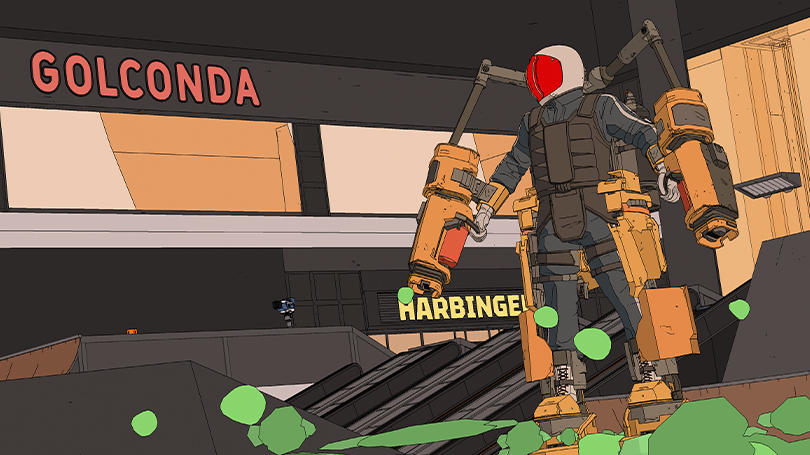
[ad_1]
If you’ve been following the sport business over the previous couple of days, you might need heard that Unity, the creators of the far-reaching recreation engine of the identical title, have made a little bit of a multitude. A brand new scheme to begin charging builders each time a Unity engine-based recreation will get put in on a PC or console has certainly united players, builders, and publishers…in condemnation of this boneheaded little bit of bare profiteering.
Here’s the gist. Starting January 1st, 2024, all video games that use the Unity engine can be charged 20 cents (USD) for every recreation set up, as soon as it hits a threshold of 200,000 downloads and $200,000 in income. A decrease cost and a better beginning threshold — $1 million in gross sales and 1,000,000 installations — can be provided for increased tiers of Unity subscriptions, beginning at round $2000 a yr.
This is a stark change from Unity’s earlier monetization system, which provided the engine and set up without cost, then relied on extra superior software program subscriptions, an built-in promoting platform (principally cellular video games, however some console and desktop stuff too), and paid analytical instruments. While Unity has clarified some early misconceptions after the information broke, corresponding to not charging for a number of installations of the identical recreation from the identical person and never charging for recreation demos, the brand new monetization makes Unity far much less engaging to the indie recreation builders that have been beforehand its bread and butter.
To put it plainly, many indies merely received’t have the ability to afford to publish video games utilizing Unity…and presumably received’t even have the ability to proceed promoting current video games that use the cross-platform engine. That’s as a result of the brand new charges apply retroactively, taking in historic gross sales to calculate whether or not already-published video games can be charged. Developers have taken to Twitter and different social media platforms to indicate how a lot the brand new coverage may cost them. The makers of such video games as Among Us, Cult of the Lamb, Vampire Survivors, and dozens extra have all stated that they’ll should roughly utterly abandon the platform if the change goes by way of as deliberate.

Unity is used on an extremely big selection of tasks, from easy 2D video games like Vampire Survivor to fast-paced 3D video games like Genshin Impact and Rollerdrome.
Private Division
Necrosoft director Brandon Sheffield posted an essay he referred to as “The Death of Unity,” pointing unequivocally at Unity CEO John Riccitiello because the villain of this drama. Riccitiello, an government at EA from 1997 to 2014 (with a three-year hole), has been working to develop Unity into new markets together with VR and industrial design. But Sheffield says that the engine itself has declined in each options and stability beneath his tenure. The change to the licensing system is the proverbial final straw.
“…if you happen to’re beginning a brand new recreation venture, don’t use Unity. If you began a venture 4 months in the past, it’s value switching to one thing else. Unity is sort of merely not an organization to be trusted.“
Brandon Sheffield, Necrosoft Games director
Cult of the Lamb‘s official Twitter account told gamers to buy the popular title now, “cause we’re deleting it on January 1st.” An enormous shift of each current and in-development video games to different engines, together with the business big Unreal, seems to be within the making. Gamers have broadly proven assist for builders. Across all arms of social media, it’s exhausting to search out anybody on Unity’s facet, with expressions of assist for builders and publishers and condemnation of Unity being near-universal.
It’s value noting that a number of Unity executives sold shares in the company the week earlier than asserting the brand new coverage, together with Riccitiello. Unity’s inventory worth has fallen by a small however important 4 % within the final 5 days.
Unity was once the cheaper, less complicated different to Epic’s Unreal engine, to not point out simpler for smaller 2D tasks and cellular video games. But the business isn’t in the identical place it was ten years in the past. Unreal’s improvement instruments have develop into extra pleasant for less complicated and extra primary video games, and cellular {hardware} is highly effective sufficient that it may run even showpiece video games like Fortnite. And Unreal 5’s monetization scheme is rather more palatable for smaller builders: It’s utterly free as much as $1 million in income, with no costs primarily based on the variety of installations. Epic has additionally attracted indie builders with sweetened sales splits on its Epic Games Store for the PC.
Even if Unity have been to reverse its proposed modifications tomorrow — and to this point, there’s no indication that that may occur — merely proposing this modification might need killed it because the go-to device for indie builders giant and small. Unity has simply demonstrated that it’s an organization prepared to alter its basic agreements with a whole business on very brief discover. Adding months or extra to a recreation venture is a small worth to pay if it’s the distinction between profitability and insolvency.
[adinserter block=”4″]
[ad_2]
Source link